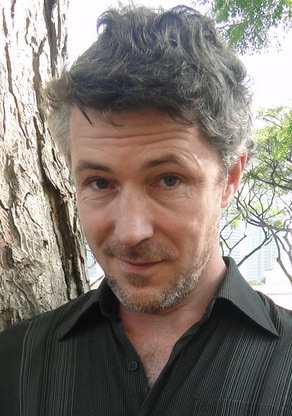Two days ago for the first time after years of not seeing it, I watched The Wire again. I was on a short domestic flight and a couple of episodes from the fourth season, which I had not seen, seemed just the ticket. This is the season that hones in on the school system and the election of the city’s mayor and like those before it, it criss-crosses between clusters of characters and interlaces storylines in order to deliver on its realist ambitions to capture a powerful sense of America’s decline from the ground up.
Some deep dense chip of resentment, wounding, humiliation is there in many of the characters Gillen plays. Each in some way seems to know that he possesses an unbidden yet driving piece of the self which is ever-present and shadows all perception. Equally, most of these characters could care less why it is there since it is the plentiful force behind their ambition and appetite for power. Who cares whereby or how-so one was provided with this gift or curse? It propels me, gives direction against authority and confinement, makes compromise and transitory humiliation tolerable. In this sequence we see how Gillen as Baltimore City Councilman Tommy Carcetti pushes back against the necessary donkey work involved in running for mayoral office. It begins with a ferocious, nihilistic denunciation of the entire process after he waltzes in late. Gillen builds up the temperature of his outburst by doing some fine business with the nut jar, plucking one from the tub and flipping it into the air to drop into his mouth with the cocky insouciance of a teen who thinks all this politics shit is boring: he wants play, wants the opportunity to use muscles of improvisation, charm and spontaneity, not the hard graft of glad-handing, worthy meetings with worthy causes, endless insipid dinners with the pre-advantaged elites. He transforms the nut from prop to punctuation as he spits part of one, or its shell, out to signal contempt for his colleague’s point: “Agnew?”. Then, on realising he’s returned to the office for a sentence in a room calling for campaign funding, he explodes with petulant whining, “Aw fuuuck! I can’t do it anymore. I hate it. I hate it more than anything!” Even his improvised reversal of familiar profanities (“Mothersucking cockfuckers!”) as he is pushed into the office has the comic and sad flair of the adolescent juggling his junk in public.
But Carcetti is no political ingenue or teen fizzed with impatient need to slate immediate desires: he knows what he has to do, as Gillen shows us in a tour de force performance where Carcetti effectively lays bare the real structure of the genre of these campaign calls by pretending to do one. There is a lot to dislike about Carcetti but one of the several reasons he and Gillen are so compelling for me (apart from the fact we are the same age) is that his procrastination is driven by the fact he already knows what he wants, what he can do: that knowledge, that picture of the future, is exciting. He also knows what it will take to get there and that is not at all exciting. Procrastination is an symptom for those of us who get to the end too quickly: we can’t wait to be there, since we have no doubts about what there is (whether a conclusion, power, a partner, a job) – but having to go through the tedium of getting there is a fucking grind. Yes, eventually we have to do that work but there must be faster, smarter ways to do it. Luck? Fortune? The Wire’s fourth season has it all.
Even when shouting Gillen’s voice has the lining of a whisper. It comes from somewhere deep back and scratches the world around it like the edge of broken flint across the wrist. This is evident not only in his most visible role as Lord Baelish in Game of Thrones but smaller ones such as Doctor Harte (he doesn’t have one) in the film Calvary (2014); in this extract, we hear it contrasted to the sonorous musicality of the voice from the jukebox:
Little wonder that his current partner, the dark, wild, Dietrich-like chanteuse Camille O’Sullivan admits she is “more drawn to the dark side”: like the singers she admires (Cave, Bowie, Waits, Brel) Gillen’s shyness is part of his skill at playing someone who knows how dangerous he is and tries, just a bit, to hide it.

